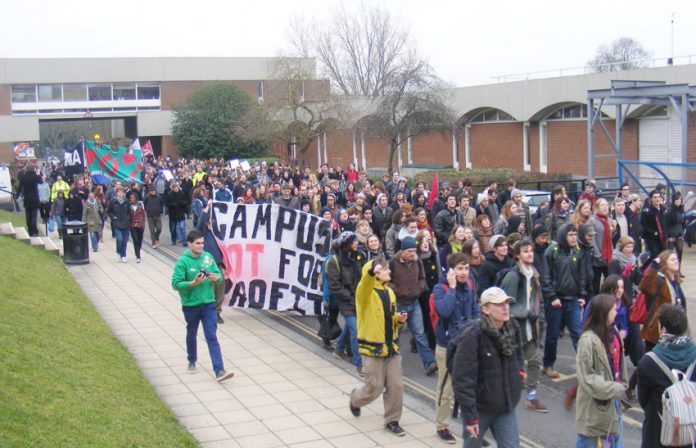
THE COALITION government’s slave labour ‘Back to Work’ programme was dealt a major blow yesterday when, in a unanimous decision, three judges from the Court of Appeal ruled that the regulations under which they operate are unlawful and must be quashed.
Cait Reilly 24, a University of Birmingham geology graduate, and 40-year-old unemployed HGV driver Jamie Wilson, from Nottingham, both succeeded in their claims that the unpaid schemes were legally flawed.
Judges found in their favour and quashed the regulations underpinning the work schemes.
They had lost their original case, but this has now been reversed by the Appeal Court.
After the judgement, solicitors for Cait Reilly and Jamie Wilson declared that anyone stripped of their benefits for failing to take part in back-to-work schemes can now claim the money back.
Cait Reilly said that in November 2011 she had to leave her voluntary work at a local museum and work unpaid at the Poundland store in Kings Heath, Birmingham, under a scheme known as the ‘sector-based work academy’.
She was told that if she did not carry out the work placement – which involved stacking shelves and cleaning floors – she would lose her Jobseeker’s Allowance.
Jamie Wilson was told that his Jobseeker’s Allowance would be stopped after he refused to take part in the Community Action Programme, which would have involved him working unpaid for 30 hours per week for six months.
Solicitor Tessa Gregory, of Public Interest Lawyers, which represented the duo, said: ‘This judgement sends Iain Duncan Smith back to the drawing board to make fresh regulations which are fair, and comply with the court’s ruling.
‘Until that time, nobody can be lawfully forced to participate in schemes affected such as the Work Programme and the Community Action Programme.
‘All of those who have been stripped of their benefits have a right to claim the money back that has been unlawfully taken away from them.’
Cait Reilly said she was delighted with the ruling, saying that making her give up her voluntary work and sending her to Poundland was wrong.
‘Those two weeks were a complete waste of my time, as the experience did not help me get a job,’ she said.
‘I was not given any training and I was left with no time to do my voluntary work or search for other jobs.
‘The only beneficiary was Poundland, a multimillion-pound company. Later I found out that I should never have been told the placement was compulsory.
‘I don’t think I am above working in shops like Poundland. I now work part-time in a supermarket. It is just that I expect to get paid for working.’